Papers by Shannon C Leddy
Qualitative Inquiry, May 18, 2023
In this article, we reflect on our teaching practices that include the development of an artist-i... more In this article, we reflect on our teaching practices that include the development of an artist-in-residency program in one teacher education course and one graduate course in the Fall of 2022 at The University of British Columbia. During these residencies, Carrier Wit’at artist and printmaker Whess Harman and Indigenous scholar and a/r/tographer Jocelyne Robinson of the Algonquin Timiskaming First Nation demonstrate through their art practices how love and land are central tenets to relational ethics. We engage with Cherrie Moraga and Gloria Anzaldua’s theory in the flesh alongside the artists-in-residencies as we consider an anti-colonial future in art education. We propose the concept of relational ethics through the flesh as a reflexive, embodied, social justice–oriented way of being in the world.
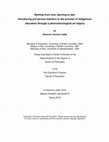
This thesis explores how a practice in phenomenological art inquiry might help pre-service teache... more This thesis explores how a practice in phenomenological art inquiry might help pre-service teachers begin the process of decolonizing themselves so they are better prepared to include Indigenous education in their lessons in sensitive and culturally relevant ways. Drawing on a review of literature in the areas of critical pedagogy, Indigenous education, and phenomenology, two central questions drive this research: 1) how might student teacher engagement in phenomenological art inquiry, informed by Ann Curry-Stevens' framework for transformative education for privileged learners (2007), impact on student teachers' perceptions of Indigenous peoples and education and help them enact more holistic approaches to Indigenous education that avoid replicating colonial stereotypes? and 2) how might art precipitate the kind of ontological uncertainty necessary for transformative education to ensue? v
Environmental Education Research, May 13, 2022

ASTE Series in Science Education, 2015
During 2011 the pre-service teacher education program of the Faculty of Education at Simon Fraser... more During 2011 the pre-service teacher education program of the Faculty of Education at Simon Fraser University was the site for the implementation of a student module having an emphasis on sustainability education. Science education was infused into the program through place-based, ecological inquiries. The cohort program, termed Sustainability Education in an Environment of Diversity (SEEDs) enrolled 32 teacher education students in an intensive 12 month teacher certification program composed of equal parts of campus and field-based coursework and seminar/workshop experiences and practicum placements in on-going K-12 school classrooms. On successful completion of the program students were eligible to apply for certification as teachers within the province of British Columbia. The student reflections and commentaries do not speak of the influence of specific courses or requirements so much as they refer to the overall quality of the program’s experience and its learning environment. With regards to implementation, in most cases the teacher candidates appeared to have adopted a view of sustainability education (SE) in schools as being realistically implemented through an infusion approach within the on-going curriculum combined with a commitment to experiential and place-based approaches to learning. Lastly, their responses suggest the power of modeling in a learning environment or experience: students appreciate learning about concepts and ideas, but they deeply appreciate seeing those ideas and concepts applied to their own professional learning experiences. Consequently, the sustainability lens in science teacher education provides teachers with a new set of modern competencies that science teacher candidates may not otherwise possess.

Alberta Journal of Educational Research, Dec 2, 2021
This article explores resistance that occurred during the implementation of an Indigenous educati... more This article explores resistance that occurred during the implementation of an Indigenous education curriculum within a teacher education program. The goal was to assist student teachers (STs) in developing a level of decolonial literacy that would help them unearth the colonial roots of their prior Indigenous education. Multiple data sources (STs written reflections, email communications, and researcher observations), were analyzed using narrative analysis to illuminate instances of resistance. Although the project showed great promise for transformative learning, the manifestation of resistance indicates the dire need for such work to continue. In our conclusion we offer some key considerations for teacher education regarding approaches to Indigenous education. Key Words: Indigenous Education, anti-racist education, resistance, teacher education, arts education Cet article explore la résistance qui était produit pendant l'implémentation d'un programme autochtone dans un programme de formations des enseignants. Le but de ce programme était d'encourager le développement d'alphabétisation décoloniale pour révéler les racines coloniales de leur éducation précédente. Plusieurs sources de données ont utilisé (des réflexions écrites, les communications courriel, et les observations des chercheurs) et ont analysé par méthode de l'analyse narrative pour illuminer des instances de résistance. Bien que le projet démontre beaucoup de potentiel, les manifestations de résistance indiquent le besoin vital pour ce travail a continué. En conclusion, nous offrons des considérations clé pour des programmes autochtones dans les programmes de formation d'enseignants. Mots clés: Éducation autochtone, éducation antiraciste, résistance, formation des enseignants, éducation artistique
Sustainability, Apr 10, 2023
This article is an open access article distributed under the terms and conditions of the Creative... more This article is an open access article distributed under the terms and conditions of the Creative Commons Attribution (CC BY
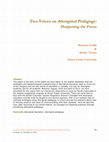
Journal of the Canadian Association for Curriculum Studies, Dec 30, 2016
This paper is the story of the paths we have taken to the shared realization that the strategies ... more This paper is the story of the paths we have taken to the shared realization that the strategies and epistemological underpinnings of Aboriginal education need to move out of the margins and into the centre of education in Canada, not only for Aboriginal students, but for all students. Between August, 2010 and April of 2012, we were seconded for two years from our Vancouver classrooms to work as Faculty Associates in the teacher preparation program at Simon Fraser University. There we came face to face with the British Columbia Teacher Regulation Branch's mandate that Aboriginal education courses must be taught to pre-service teachers. Part of our purpose was to cultivate strategies using Aboriginal pedagogy to inform pre-service teachers about how to develop practice and ways of communicating with their students. Here we describe how, after returning to our school district, we changed our teaching practices through actualizing Aboriginal pedagogy.
Proceedings of the 2019 AERA Annual Meeting, 2019
BRILL eBooks, Feb 28, 2020
Identity Landscapes, 2020
Identity Landscapes, 2020
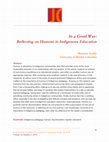
Journal of the Canadian Association for Curriculum Studies, 2018
Humour is ubiquitous in Indigenous communities, and often provides some of the most memorable mom... more Humour is ubiquitous in Indigenous communities, and often provides some of the most memorable moments in our relationships with one another. In this article, I explore an instance of such humour backfiring in an educational situation, and reflect on whether humour was an appropriate response. After surveying some academic research in the area of humour in the classroom, as well as some of the works of several prominent Indigenous writers and comedians, I reflect on the importance of humour in Indigenous pedagogy. Drawing on this research, and moments from my own practice, I theorize that humour has three core pedagogical impacts. First, it has a humanizing affect, helping us to see one another more clearly, and to appreciate that we all have foibles, and areas of ourselves that require improvement. It is also a culturally relevant pedagogy, having been used for millennia as a mechanism of social order and of upholding community values in Indigenous communities. Finally, humour also ...
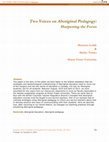
This paper is the story of the authors’ paths to the shared realization that the strategies and e... more This paper is the story of the authors’ paths to the shared realization that the strategies and epistemological underpinnings of Aboriginal education need to move out of the margins and into the centre of education in Canada, not only for Aboriginal students, but for all students. Between August, 2010 and April of 2012, the authors were seconded for two years from their Vancouver classrooms to work as Faculty Associates in the teacher preparation program at Simon Fraser University. There we came face to face with the British Columbia Teacher Regulation Branch’s mandate that Aboriginal education courses must be taught to pre-service teachers. Part of our job was to cultivate strategies using Aboriginal pedagogy to inform pre-service teachers’ developing practice and ways of communicating with their students. Here we describe how, after returning to our school district, we changed our teaching practices through actualizing Aboriginal pedagogy.
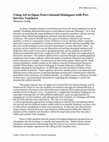
SFU Educational Review, 2014
In 2005, Canadian scholars Carol Schick and Verna St. Denis published an article entitled “Troubl... more In 2005, Canadian scholars Carol Schick and Verna St. Denis published an article entitled “Troubling National Discourses in Anti-Racist Curricular Planning.” In it, they describe encountering the same problems in their respective practices with pre-service teachers when addressing Indigenous and post-colonial curricula; namely, resistance. The authors identify four key areas of resistance offered by pre-service teachers: 1) there is a perception of loss of liberty in course selection when a required anti-racist course is mandated; 2) students perceive an affront with the possibility that they are morally lacking in some way that necessitates a course about the “other”; 3) most pre-service teachers do not see themselves as teaching aboriginal students and think they don’t need to learn about aboriginal people; and 4) students are afraid of feeling uncomfortable about the conditions of the “other” and their own implication in that power structure. The authors address these concerns th...

Canadian Journal of Environmental Education, 2014
During 2011 at Simon Fraser University, the Faculty of Education hosted the implementation of a p... more During 2011 at Simon Fraser University, the Faculty of Education hosted the implementation of a pre-service teacher education program with an emphasis on sustainability and environmental learning. This cohort, termed SEEDs (Sustainability Education in an Environment of Diversity), enrolled 32 teacher education students in an intensive 12-month teacher certification program composed of equal parts campus and field-based seminar experiences and practicum placements in a variety of K-12 school classrooms. While reflections on the overall experience from students and community stakeholders were positive, the potential of the model (with students, Faculty Associates, and School Associates fully supporting each other) was not fully realized. Stakeholders involved in the development and implementation of the SEEDs module were left feeling melancholy as we discovered “dark matter” in our difficulties with implementing a true community of practice for environmental learning hosted within the...
Although I have had several requests for this paper, please note that Carlos Ormand is the lead a... more Although I have had several requests for this paper, please note that Carlos Ormand is the lead author.
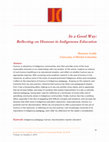
Journal of the Canadian Association for Curriculum Studies, 2018
Humour is ubiquitous in Indigenous communities, and often provides some of the most memorable mom... more Humour is ubiquitous in Indigenous communities, and often provides some of the most memorable moments in our relationships with one another. In this article, I explore an instance of such humour backfiring in an educational situation, and reflect on whether humour was an appropriate response. After surveying some academic research in the area of humour in the classroom, as well as some of the works of several prominent Indigenous writers and comedians, I reflect on the importance of humour in Indigenous pedagogy. Drawing on this research, and moments from my own practice, I theorize that humour has three core pedagogical impacts. First, it has a humanizing affect, helping us to see one another more clearly, and to appreciate that we all have foibles, and areas of ourselves that require improvement. It is also a culturally relevant pedagogy, having been used for millennia as a mechanism of social order and of upholding community values in Indigenous communities. Finally, humour also has a soothing effect, especially in the face of grappling with difficult concepts and situations, and can ease the tensions that often arise in Indigenous education classrooms. Used judiciously, humour is a powerful tool for decolonization. While I do not presume to offer a prescription for the use of humour in the classroom, in reflecting on my own practice, I am increasingly convinced of its importance in Indigenous pedagogy, and I offer my reflections for the reader's consideration.
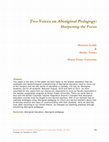
This paper is the story of the paths we have taken to the shared realization that the strategies ... more This paper is the story of the paths we have taken to the shared realization that the strategies and epistemological underpinnings of Aboriginal education need to move out of the margins and into the centre of education in Canada, not only for Aboriginal students, but for all students. Between August, 2010 and April of 2012, we were seconded for two years from our Vancouver classrooms to work as Faculty Associates in the teacher preparation program at Simon Fraser University. There we came face to face with the British Columbia Teacher Regulation Branch's mandate that Aboriginal education courses must be taught to pre-service teachers. Part of our purpose was to cultivate strategies using Aboriginal pedagogy to inform pre-service teachers about how to develop practice and ways of communicating with their students. Here we describe how, after returning to our school district, we changed our teaching practices through actualizing Aboriginal pedagogy.

Canadian Journal of Environmental Education, 2014
During 2011 at Simon Fraser University, the Faculty of Education hosted the implementation of a p... more During 2011 at Simon Fraser University, the Faculty of Education hosted the implementation of a pre-service teacher education program with an emphasis on sustainability and environmental learning. This cohort, termed SEEDs (Sustainability Education in an Environment of Diversity), enrolled 32 teacher education students in an intensive 12-month teacher certification program composed of equal parts campus and field-based seminar experiences and practicum placements in a variety of K-12 school classrooms. While reflections on the overall experience from students and community stakeholders were positive, the potential of the model (with students, Faculty Associates, and School Associates fully supporting each other) was not fully realized. Stakeholders involved in the development and implementation of the SEEDs module were left feeling melancholy as we discovered "dark matter" in our difficulties with implementing a true community of practice for environmental learning hosted within the structure of a large and diverse teacher certification program. This paper focuses on the reflections of SEEDs students, instructors, and courses facilitators working in the program, but more importantly recounts the constraints faced by the community as it attempted to reconceptualize the dominant (hegemonic) approach of teacher development common in Canadian teacher certification programs.
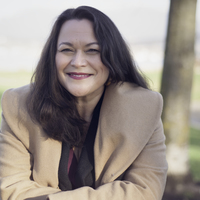

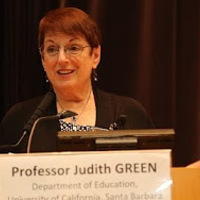



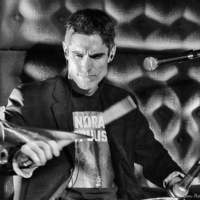
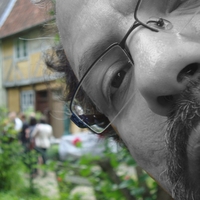
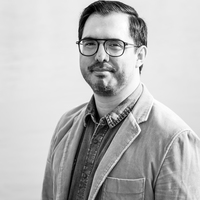

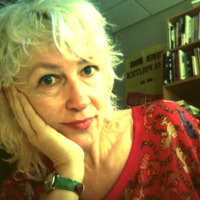
Uploads
Papers by Shannon C Leddy